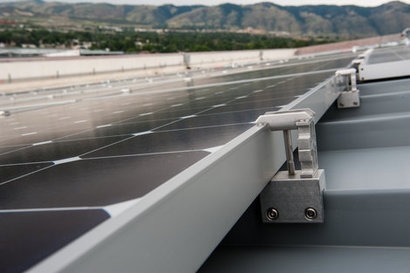
Jellyfish Barge is a floating agricultural greenhouse produced by PNAT, a spinoff of the University of Florence, which is able to purify salt, brackish or polluted water using solar energy. It derives from a larger project by architects Antonio Girardi and Cristiana Favretto (Studiomobille) called Jellyfish Farm and is coordinated by Professor Stefano Mancuso of the University of Florence and director of the International Laboratory of Plant Neurobiology (LINV).
Pnat is a think tank of designers and biologists which aims to merge plants, research, science and creativity, mimicking patterns of natural processes in order to provide solutions to emerging problems such as environmental changes and depletion of resources.
The aim of the Jellyfish Barge is to tackle the escalating global demand for food predicted by the World Bank to grow by 60 to 70 percent by 2050 as the world’s population increases to almost 10 billion people over the next four decades.
The major problems facing global food production include scarcity of water and cultivable land with most of the potential arable land concentrated in just a few geographical areas. It is particularly scarce in regions with high population growth rates such as North Africa and the Arabian Peninsula. Furthermore, agriculture relies heavily on water resources and in many regions, such as India, Pakistan and Southern Spain, the demand for water for agricultural purposes is reliant on unsustainable methods such as over-extraction from underground reservoirs. These difficulties are increasingly exacerbated by changes in the climate, exposing many areas to increased risks and contributing to increased water and food insecurity.
Tackling these challenges in a holistic way can result in a considerable improvement in water and food security among coastal communities. The Jellyfish Barge has been designed with low-cost technologies and simple materials, consisting of a wooden base of around 70 square metres floating on recycled plastic drums and supporting a glass greenhouse for crop cultivation.
The greenhouse contains a high-efficiency hydroponic cultivation system which provides up to 70 percent of water savings compared to traditional hydroponic systems. The Jellyfish Barge also has an automated system with remote monitoring and control.
Water for the greenhouse is supplied by 7 solar desalination units arranged around its perimeter. These are able to produce up to 150 litres per day of fresh clean water from salt, brackish or polluted water. This is achieved by a solar desalination system that replicates natural solar distillation in which solar energy evaporates water which then falls as rain water. The system sucks in moist air and condenses it within the drums in contact with the cold surface of the sea. Solar panels, mini wind turbines and an innovative wave energy system provides energy for electricity.
The Jellyfish Barge has been designed to be relatively small in size but capable of supporting two families and is therefore easy to construct in areas with economic constraints. Its modular design allows a single element to be completely autonomous but with the ability to be combined with other flanked barges to create a more resilient and stronger organism.
The working prototype, realised by LINV with assistance from Fondazione Cassa di Risparmio di Firenze and Regione Toscana, has been installed in the Navicelli Canal between Pisa and Livorno. It was officially inaugurated on 31st October 2014 at the headquarters of Navicelli Spa in Pisa.
For additional information:

